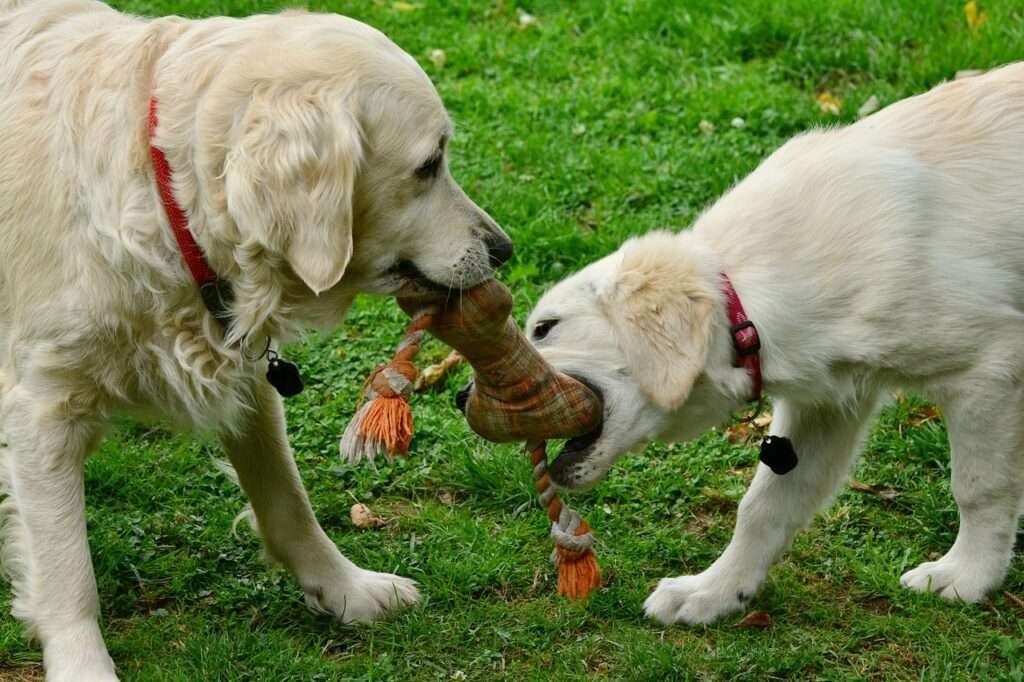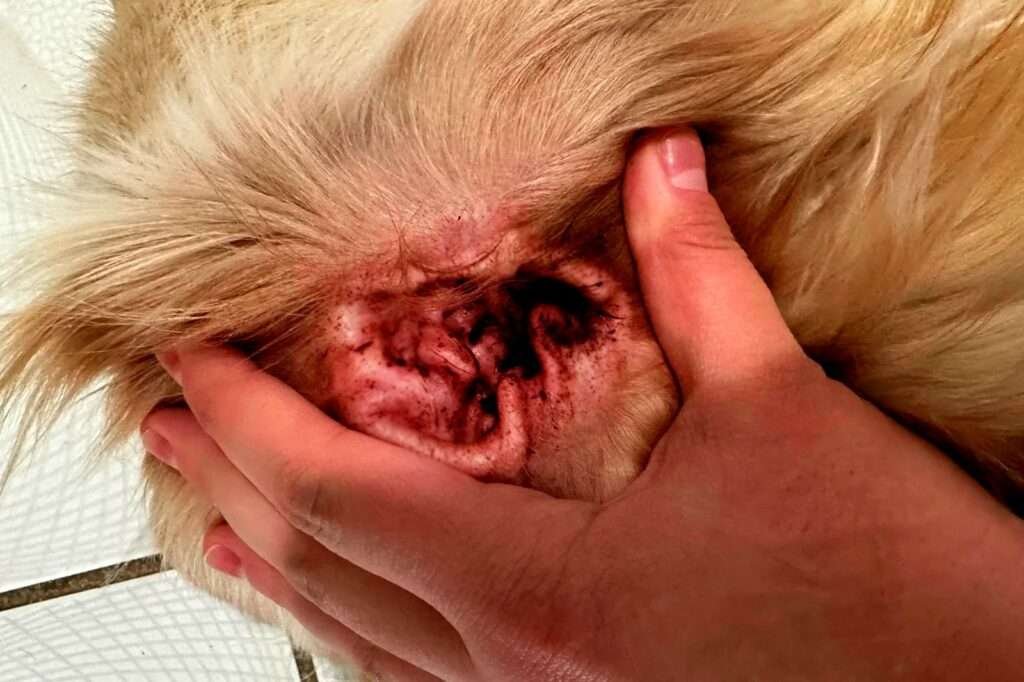Like human babies, newborn puppies need special care and attention. Here’s what you should know about caring for your newborn pups after they’re born.
Table of Contents
ToggleApproach with Care:
It’s natural to want to shower newborn puppies with affection, but it’s important to give them space in their first week or two. They’re vulnerable to illness, and too much handling can stress both them and their mother. Approach them cautiously, as some mothers may become protective and show aggression towards humans or other pets if they feel threatened. As the puppies grow and become more active, your dog will need breaks to rest, exercise, and interact with the household. Provide her with space to retreat from the puppies while ensuring she checks on them regularly.
Keep Them Warm:
Newborn puppies can’t regulate their body temperature until they’re 3 to 4 weeks old. During the first four weeks, provide a warm, clean box or bedding for the mother and pups. Use a heating lamp to keep them warm, but ensure there are cooler areas for the puppies to move to if they become too hot. Monitor their temperature closely; it should be between 96-98°F during the first week. Avoid using heating pads, as they can cause burns if the puppies stay on them for too long.
Start Socializing Early:
If the mother permits, introduce the puppies to your presence early on. Socializing them from a young age helps them adjust well to household life. Watch out for any puppies that seem smaller or weaker than their littermates, as they may have health issues that need attention.

Feeding and Weaning:
Newborn puppies need to nurse every 2 hours for the first week or two, then gradually extend feeding times to 3-4 hours as they grow. During this period, the puppies should only rely on mother’s milk. Start weaning them onto puppy food when they’re 3 to 4 weeks old by mixing high-quality commercial puppy food with water or canned puppy food to soften it. They should still have access to their mother, who will continue to nurse them, but they’ll gradually rely more on puppy food. Also, don’t feed the puppies by yourself. Let the mother feed the babies.
Contact Your Vet:
It’s essential to contact your veterinarian soon after the puppies are born. They can advise on when the puppies should be examined and vaccinated. Most vets recommend deworming every 2 weeks starting at 2 weeks old, and the first distemper/parvovirus vaccination around 6 weeks, unless otherwise advised.
Taking care of newborn puppies requires patience, attention, and proper knowledge. By following these guidelines, you can help ensure the health and well-being of the newest members of your furry family.
Hand-Feeding Orphan Puppies:
Obviously, there might be circumstances where the puppy doesn’t have a mother or it’s the first time the mother gave birth, and she doesn’t accept the children. If this is the case, then you have to feed the baby with a syringe. Puppies should NOT be fed in their position of lying on their back (belly up) because it makes them easily throw up. So the best feeding position for them is belly down. Basically, the dog family is a lactose-intolerant family. This means they don’t have lactose in them, which is present in milk in great quantity. If you give your puppy the milk of a cow or buffalo, then he won’t be able to digest it. Either there would be a blockade in the stomach or the stomach would swell, and the puppy could die due to diarrhea or constipation. You can keep your puppy on milk replacer. You can get them easily in the market. If you don’t have milk replacer, then you can use goat milk. But make sure you add 50 percent water with the goat milk. You can use a syringe to feed a newborn puppy. After 3-4 weeks, you can use a feeder. Make sure to feed the puppies every 3 hours.



